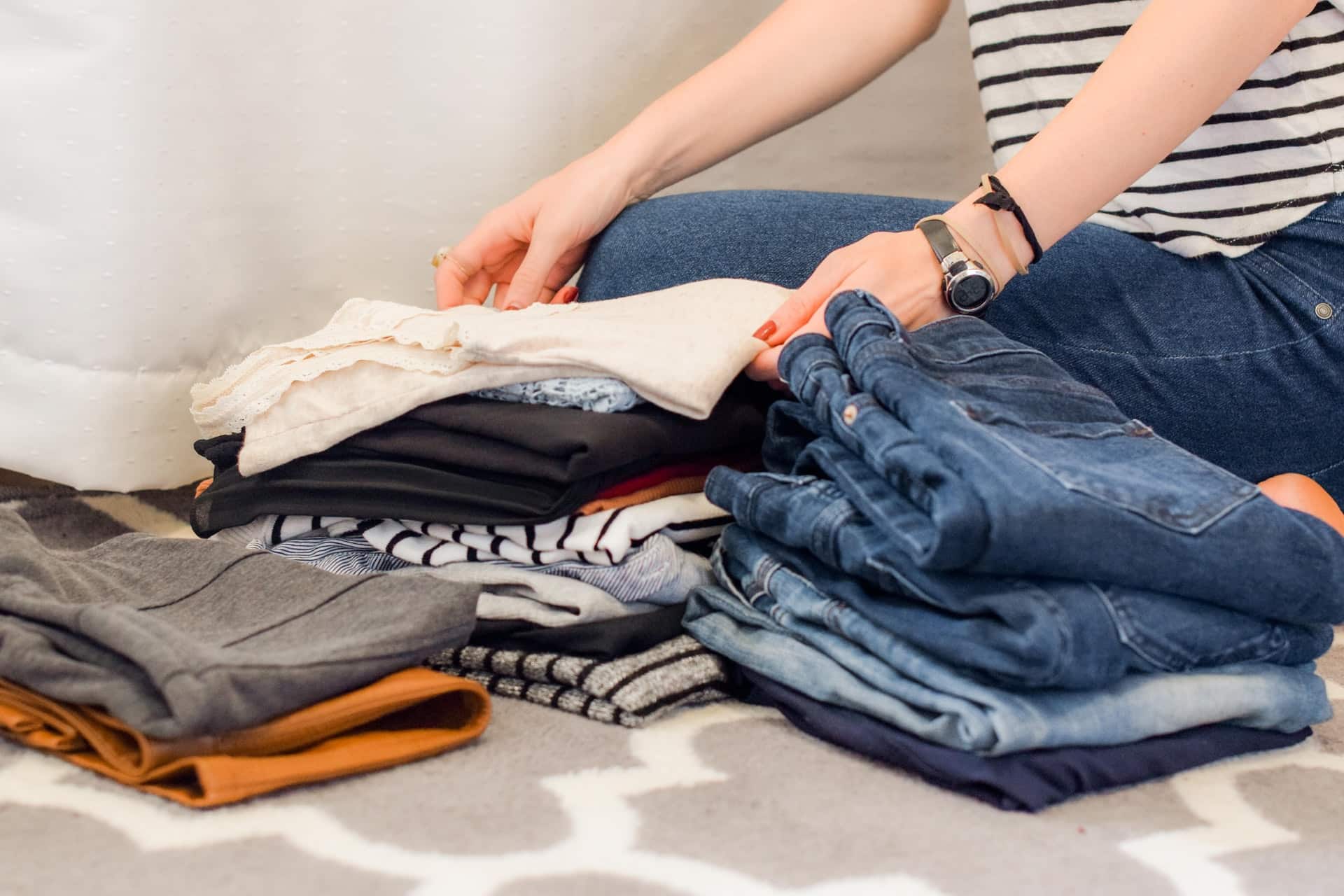
Green Tips for Conscious Decluttering

Spring cleaning and decluttering your home is a great opportunity to start fresh, get rid of things you don’t need, and update things requiring attention. It’s also an excellent time to examine your home life and consumption habits to find ways to live more sustainably.
How we live our lives and manage our homes has a big impact on our carbon footprint. So when spring cleaning and decluttering, it’s beneficial to also find ways you can buy less stuff and create less waste to help protect the environment.
This article will further look at why a zero-waste lifestyle is important and how you can declutter, clean, and update your home this spring to start living more consciously.
Why a Conscious, Zero-Waste Lifestyle is Important
Climate change and dwindling resources are becoming a bigger problem with each year that passes. The more stuff we buy and use, and the more energy we consume, the more we are contributing to waste and carbon emissions are incredibly harmful to our health and the environment.
This is why it is so important for more individuals to start taking action to mitigate further damage and ensure a brighter, more sustainable, future for generations to come. Of course, there are numerous ways to reduce your environmental impact, but it is often our home life doing the most damage.
By creating a more zero-waste home life, you can significantly reduce your carbon footprint. Conscious decluttering isn’t just about cleaning and getting rid of junk; it’s about making your home healthier, eco-friendlier, and more efficient by taking a closer look at what you have, what you can do without, conscious ways to get rid of the clutter, and how to make more sustainable updates.
Responsible and Sustainable Ways to Declutter and Update Your Home This Spring
Decluttering and thoroughly cleaning your home can be great for your mental and physical health, but it’s better for the environment as well. The more stuff we have, the more waste we produce. But when you declutter, it forces you to take a closer look at your spending and living habits, which can help you identify ways you can cut costs, reduce your waste output, and even ways you can make updates to consume less energy.
If you aren’t careful, however, decluttering can make things worse. For example, you should not just toss everything you don’t need into the garbage, as this contributes to waste. You should also be mindful of the cleaning products and other materials you are using when you are decluttering and cleaning things out.
The tips below will help you declutter more responsibly and find ways to make more sustainable updates along the way.
Donate or Sell Items You Don’t Need
When decluttering, if you come across items you don’t want or need, but that are still in decent condition, consider donating or giving them away instead of throwing them out. There are always people in need who will consider your items a treasure to have. So just because you don’t want it or need it anymore doesn’t mean it can’t bring joy to someone else.
Clothing items are particularly helpful to donate as they might otherwise end up in a landfill if you toss them out. Even if they are a bit worn and have some minor stains, lots of charities or even thrift stores will still take them so they can go to others in need. You can also give items away to people you know, or sell them online or in a yard sale, if they are still in good condition.
Find Ways to Reuse or Fix Old Items
As a society, we are very quick to toss things out when they become used, worn, or even broken because it is so easy for us to simply go out and buy something new. But this behavior is what largely contributes to waste. Instead, it would be better if we first tried to find ways to reuse or fix our old items before throwing them away.
Reusing what you already have instead of buying something new is a key part of the buyerarchy of needs, which is about saving money and living more sustainably. This can involve finding ways to repurpose what you have, such as turning an old bookshelf into a home bar or fixing items that need repair or are broken to prolong their life.
Appliances, such as your refrigerator, for example, might just need a bit of cleaning and maintenance rather than a whole new upgrade. People often forget about maintaining things like this and simply toss them out for something new when they stop working. But throwing out appliances is incredibly wasteful, especially when they might easily be repaired.
Recycle Your Unwanted Items
Plastic waste and e-waste are major concerns as both contribute to pollution and climate change. So as you go through to clean and declutter your home, pay close attention to what items can be recycled instead of thrown in the garbage. If something is truly beyond repair and is not worth donating or giving away, it might need to be tossed out. Just make sure you check if it can be recycled first before throwing it in the garbage. Even seemingly “beyond repair” items can be sold for scrap or repurposed.
Look for Places to Make Eco-Friendly Updates
Aside from being mindful of things you have and what to toss or how to get rid of them, you should also look for ways to make changes to your home to make it more sustainable. Eco-friendly upgrades, such as solar panels, energy-efficient lighting, and Energy Star appliances, are great ways to reduce your carbon footprint and live more consciously.
Go Green This Spring!
No matter what steps you take this spring—whether it’s decluttering, finding ways to repurpose old items, recycling, donating, or making sustainable upgrades—your goal should be to live as green as possible. Living a more zero-waste and natural lifestyle is not only beneficial to the planet, but it’s also good for your mental and physical health. Even making your home more natural and inviting by bringing in more plants and opening the windows more often can help you live more happily and sustainably.



Post a comment